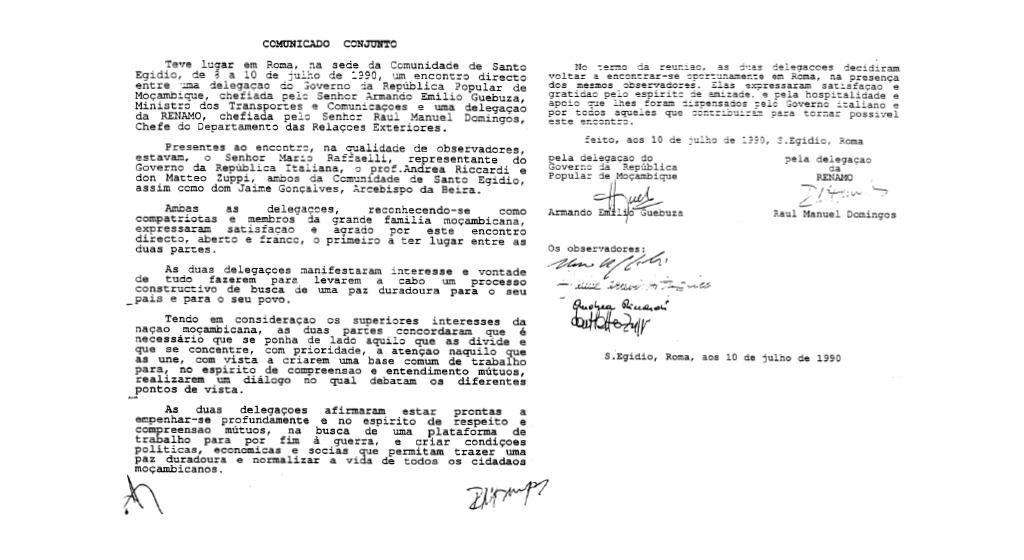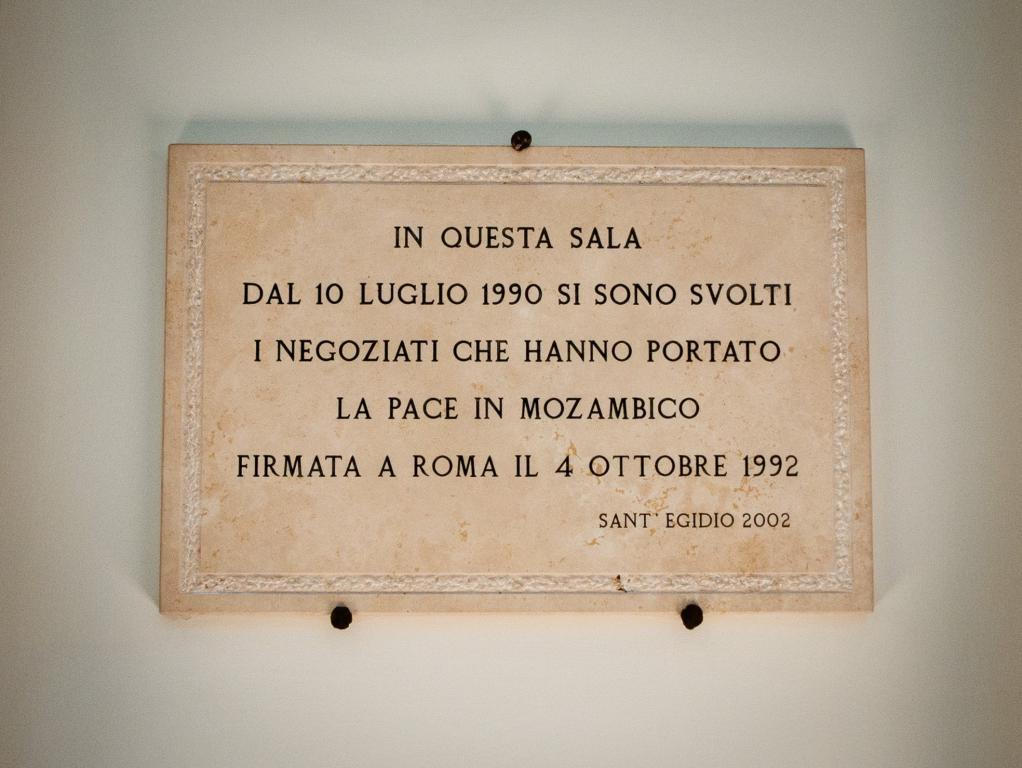Just 30 years ago, on the 10th July 1990 at the end of two days of talks in Sant 'Egidio, the delegations of the Mozambican government and Renamo released the first joint statement in which acknowledging themselves to be compatriots and members of great Mozambican family expressed interest and willingness to do everything possible to conduct a constructive search for a lasting peace for their country and their people. Moreover, they outlined the method that would guide the negotiations until the signing of peace, on 4 October 1992:
“set aside what divides them and focus, as a matter of priority, on what unites them, in order to establish a common working basis so that, in a spirit of mutual understanding, they can engage in dialogue, in which they discuss their different points of view”.
The document, which opens a two years intensive negotiation process for the pacification of the country, bears the signature of Andrea Riccardi and Matteo Zuppi, of the Community of Sant 'Egidio, Mgr. Jaime Gonçalves, Archbishop of Beira, and Mario Raffaelli for the Italian government, together with the two Mozambican representatives, Armando Emilio Guebuza (Frelimo) and Raul Manuel Domingos, for (Renamo).
Peace led to a new season for Mozambique, between economic and social development, and great challenges such as the fight against AIDS. Sant 'Egidio has always been alongside the Mozambican people, supporting and strengthening the struggle to overcome every challenge. Today more than ever - while new threats of violence are escalating in the north of the country - it is vital to remember the peace process which started 30 years ago, and treasure the “method” which opened new ways of unity and restored peace to the country.
First joint communiqué of the direct talks of the Mozambique Peace Process
From 8 to 10 July 1990, at the headquarters of the Community of Sant’Egidio, Rome, a direct meeting took place between a delegation of the Government of the People’s Republic of Mozambique, headed by Armando Emilio Guebuza, Minister of Transport and Communications, and a delegation of RENAMO, headed by Raul Manuel Domingos, Chief of External Relations Department.
Mario Raffaelli, representative of the Government of the Italian Republic, Andrea Riccardi and Matteo Zuppi, both of the Community of Sant’Egidio, and Jaime Gonçalves, Archbishop of Beira, attended the meetings as observers.
The two delegations, acknowledging themselves to be compatriots and members of great Mozambican family, expressed satisfaction and pleasure at this direct, open and frank meeting, the first to take place between the two parties
The two parties expressed interest and willingness to do everything possible to conduct a constructive search for a lasting peace for their country and their people.
Taking into account the higher interest of the Mozambican nation, the two parties agreed that they must set aside what divides them and focus, as a matter of priority, on what unites them, in order to establish a common working basis so that, in a spirit of mutual understanding, they can engage in dialogue, in which they discuss their different points of view.
The two delegations affirmed their readiness to dedicate themselves fully, in a spirit of mutual respect and understanding, to the search for a working basis from which to end the war and create the necessary political, economic and social conditions for building a lasting peace and normalizing the life of all Mozambican citizens.
At the close of the meetings, the two delegations decided to meet again in due course at Rome, in the presence of the same observers. They expressed satisfaction and gratitude for the spirit of friendship and the hospitality and support shown them by the Italian Government and by all those who helped make this meeting possible.
Done at Sant’Egidio, Rome, on 10 July 1990.
FIND OUT MORE:
















